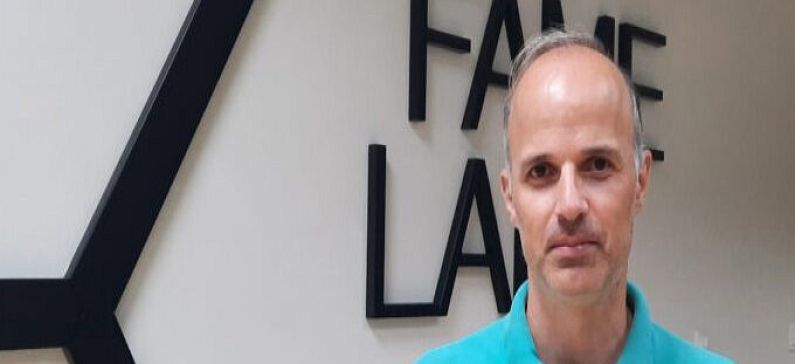
The first Greek on TIME’s list of 100 people who will change the world
For the first time, a Greek has been included in the list of the 100 people who will change the world by the world famous and reliable TIME magazine. This is a special honor for our country as this annual list recognizes 100 people from all areas of politics, science, art and social action with the strongest potential to make a major impact by changing the world.
This is Dr. Andreas Flouris, Associate Professor at the Department of Physical Education and Sports Science of the University of Thessaly, who was recognized for his contribution in the fields of physiology, environmental health and sustainability.
The list, which only started to be published in 2021, has included politicians such as Sanna Marin, the former Prime Minister of Finland, Kaya Callas, the Prime Minister of Estonia who was singled out for her fight for Ukraine in European forums, and even the current Prime Minister of Great Britain, Rissy Shunak.
Who is Andreas Flouris
For the last 20+ years, Dr. Andreas Flouris has been researching to understand the impact of climate change and environmental factors on public health and other aspects of our lives such as the economy, competitiveness and quality of life. He is an advocate for climate action and the fight for sustainability to secure the future of our planet and societies.
“I am honored to be included in the TIME100 Next list,” Dr. Flouris told APE-MPA. “This recognition is a testament to the hard work of my FAMELab research group at the University of Thessaly and the support of my colleagues and mentors. The purpose of my research is to help create a more sustainable and just future for all.”
What sets Dr Flouris apart is not only his significant academic achievements but also his efforts to translate scientific knowledge into social action. He has advised governments and international organizations such as the Cyprus Presidency, the Ministry of Labour and Social Security in Greece, the Qatar Ministry of Labour, the World Health Organization, the International Labour Organization, the European Centre for Disease Prevention and Control, the European Space Agency and NASA on the critical interactions of climate change and environmental factors with health, sustainability, as well as assessing the impact and communicating risks in the present and future.
As Dr Flouris explains, “our studies span a wide range, from small and large-scale field studies, basic and applied laboratory research, clinical studies, environmental monitoring and modelling, epidemiological research, risk assessment and policy or economic analysis.” He goes on to say that “we are very pleased that our research has been funded by the Commission with more than €20 million since 2010. They are very interested that our research focuses on Commission priorities such as the effects of heat stress, air pollution and extreme weather events on health and quality of life.” So far, Dr Flouris’ research has had a significant impact on policy. It has helped develop guidelines and legislation on heat stress and air quality as well as climate change adaptation strategies.
As he says, “the ability of scientists to communicate complex concepts to the public is vital for raising public awareness. Taxpayers support research but, unfortunately, it often goes unused and does not go beyond the level of a scientific article that only a few people read. This must change”.
“So far, I have been fortunate to supervise the research of more than 60 outstanding post-doctoral and doctoral students. Today, many of these people are working in organisations such as the European Commission, major universities and research centres in Europe and North America, or have pursued other highly innovative career paths. I am very proud of the work produced by the researchers in our team.” He concludes by stressing that “the next generation of scientists is our best hope for addressing the challenges of climate change and environmental degradation. As an academic, I am committed to supporting their work and helping them make a positive impact on society as a whole.”







